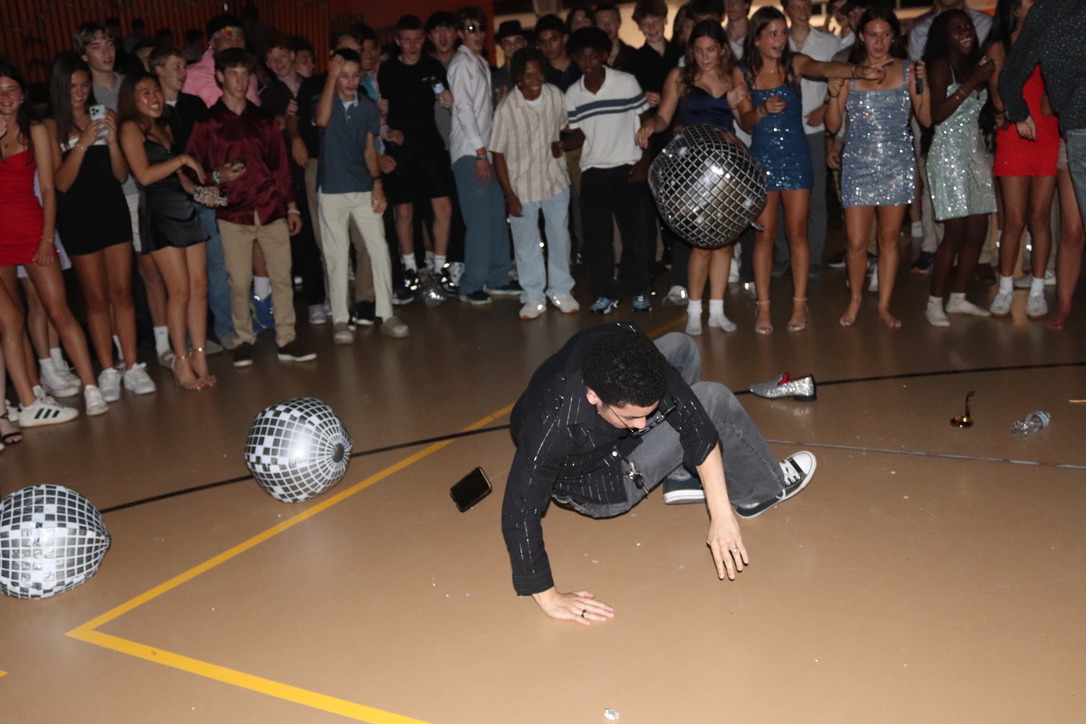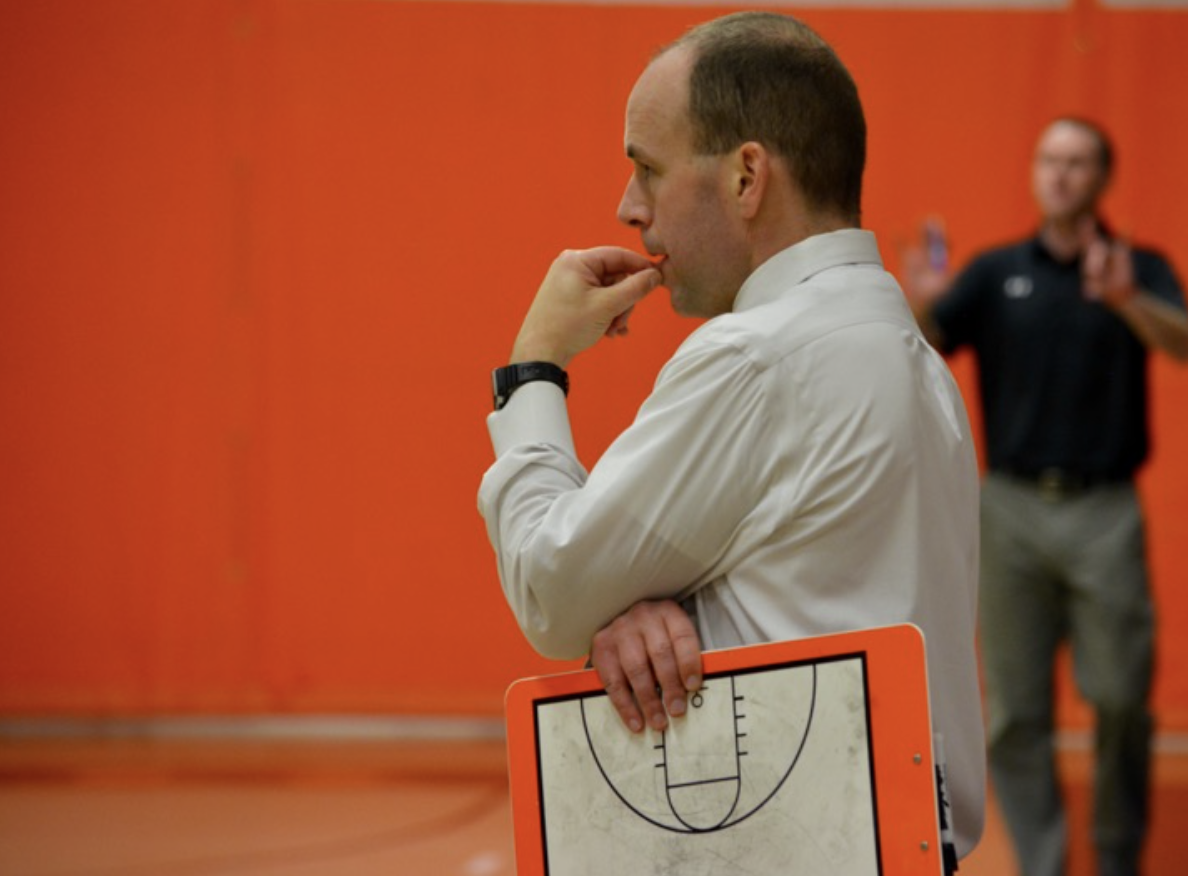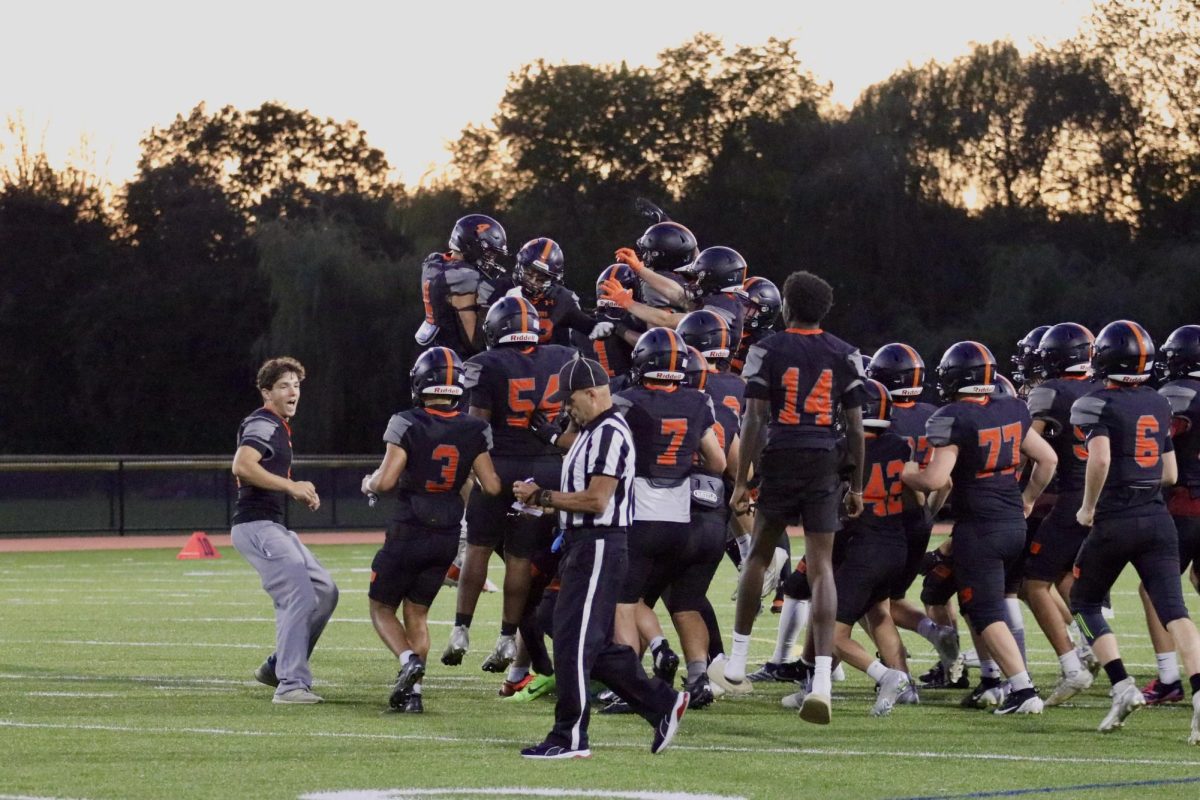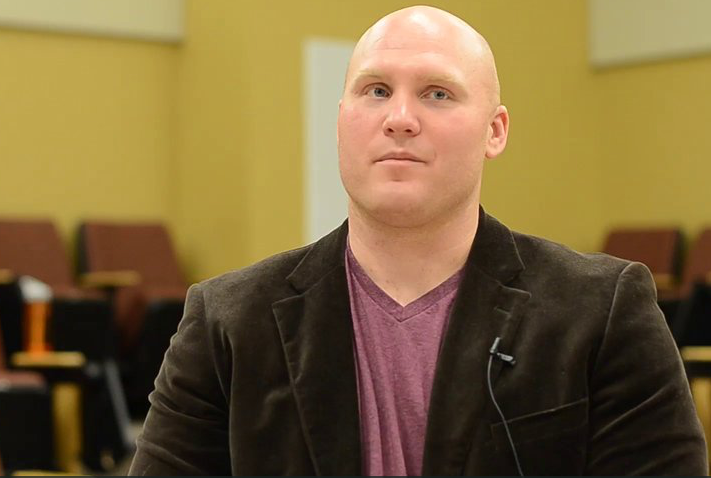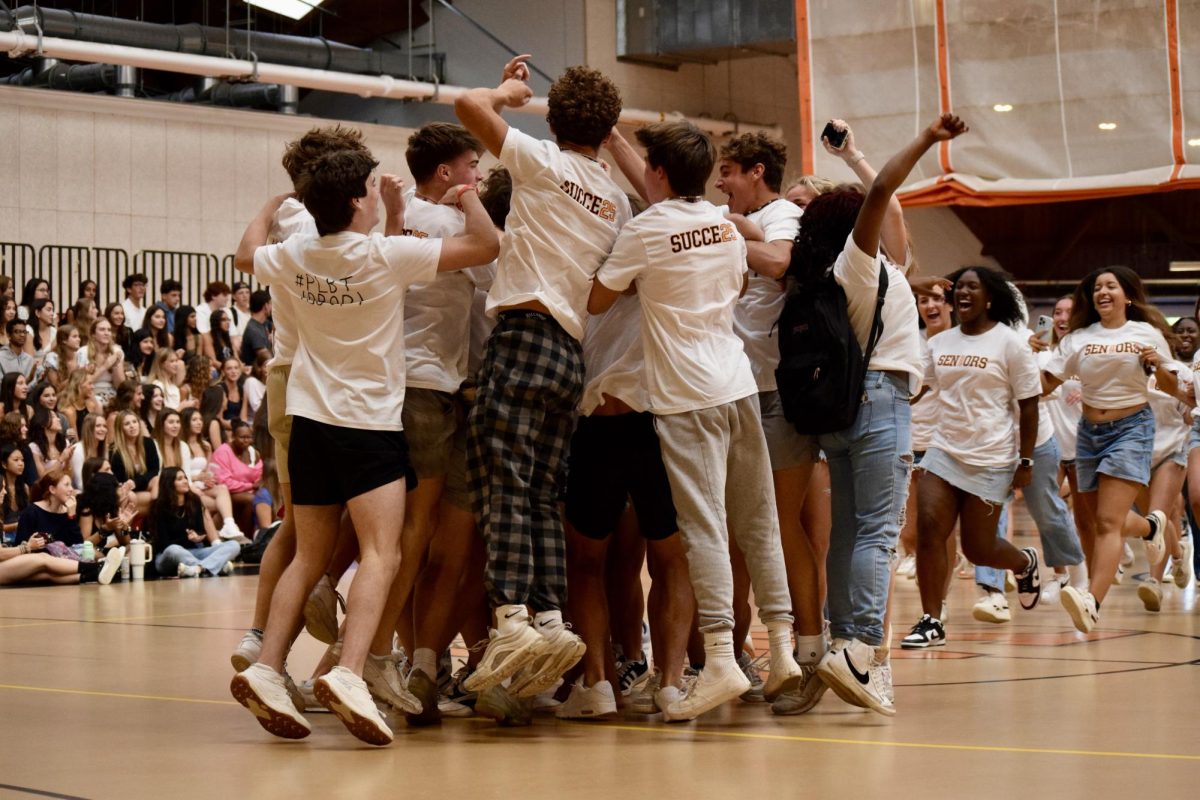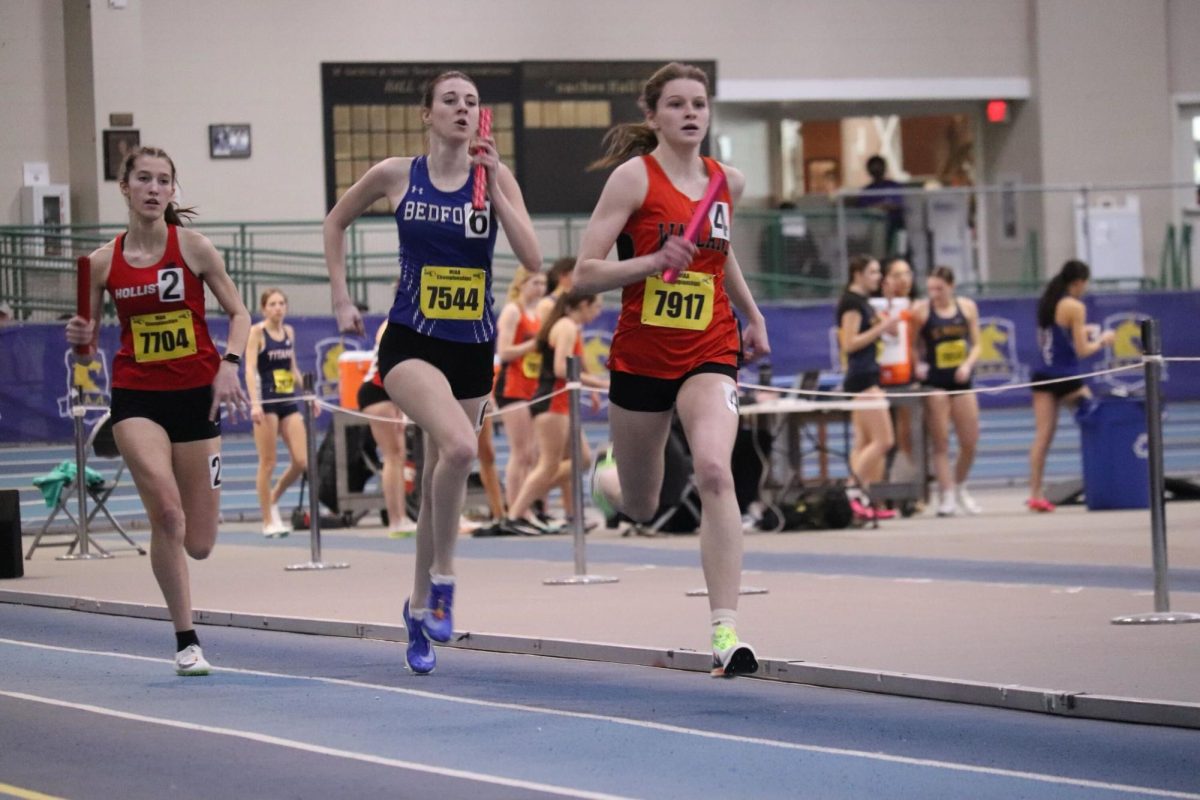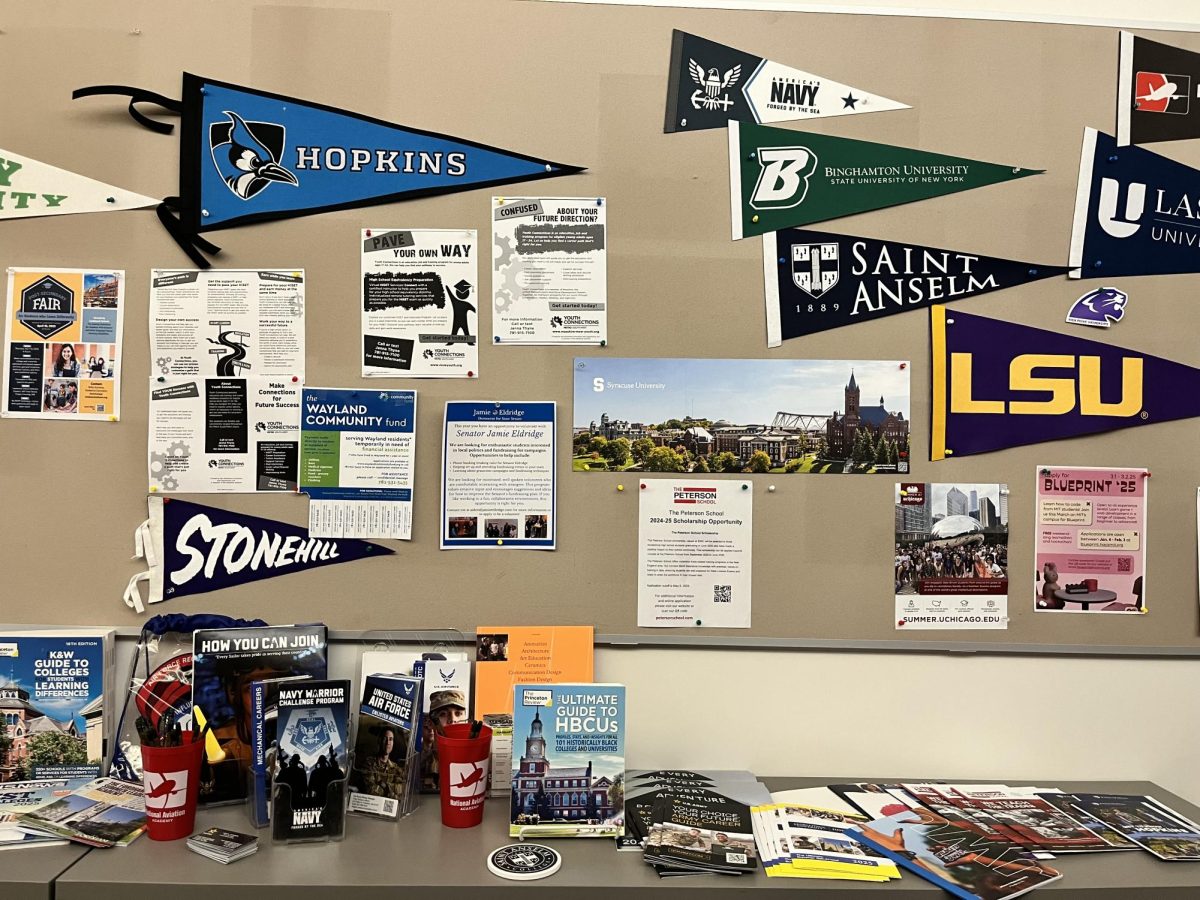Check out an interview WSPN did with Kacyvenski above!
On Wednesday, January 30, former NFL linebacker Isaiah Kacyvenski visited WHS to speak to students about his background, his experiences and his drive to succeed.
Growing up in Endicott, New York in the 1970’s and 80’s, Kacyvenski was the youngest of five children and lived part of his childhood in poverty.
Nobody in Kacyvenski’s family played sports, so the only time he was exposed to football was when peers at his elementary school would pass a football around.
However, everything changed when Kacyvenski heard his first football game. His family did not have access to a television, so Kacyvenski listened to the 1986 football game through the radio.
“After I listened to the game on the radio, I saw the kids playing it and it really brought the game to life for me,” Kacyvenski said. “It was love at first sight.”
By Kacyvenski’s freshman year, he realized that football was his “bliss.” He tried to go to camp at Notre Dame but was rejected. It was then that he decided to change his life.
“Football to me, was always a place where I could lose myself, and it’s been like that since I discovered it,” Kacyvenski said. “There is an inner peace in me whenever I play the game.”
He made a sign for himself that says “Let no one out-train you today.” From then on, he decided to work hard for everything that came his way.
“I had a little formula worked out: hard work, put your best foot forward, and make the most out of every situation. This helped me succeed,” Kacyvenski said.
By his senior year, Kacyvenski was the captain of his high school’s varsity football team. He was accepted into Harvard University by coach Tim Murphy, father of Wayland High School senior Grace Murphy.
Kacyvenski went on to graduate cum laude from Harvard and played for the Seattle Seahawks, getting picked in the fourth round.
Kacyvenski retired in 2008 and now lives in Weston, Massachusetts. However, he still remembers his humble beginnings and the struggles he went through when he was younger.
“I’m never going back there [into poverty]. My last waking hour will be spent thinking ‘I’m not going back there,” Kacyvenski said.

![During the WHS club fair, senior Molly Bergeron is watching a student sign up for her club, Eliza J. Norton Foundation. In this club, students meet every week and come up with ideas to spread the message. "[This club] really touches a lot of people in the town," Bergeron said.](https://waylandstudentpress.com/wp-content/uploads/2025/10/IMG_1335-1200x800.jpg)



